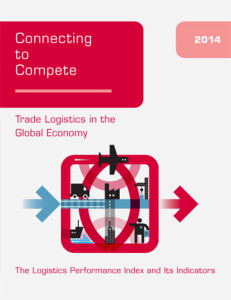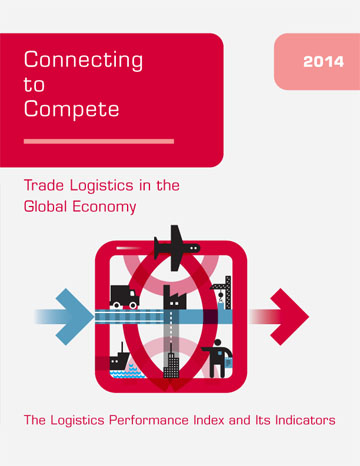
The Philippines has declined further in the World Bank’s Logistics Performance Index (LPI) Report 2014, slipping to 57th place in the biennial report from 52nd in 2012.
The LPI report ranks 160 countries based on several dimensions of trade including customs performance, quality of trade and transport infrastructure, ease of arranging competitively priced shipments and competence and quality of logistics services such as trucking, forwarding, and customs brokerage, which have increasingly been recognized as important to development.
The Philippines received a score of 3.00, while Germany, which climbed three rungs to dislodge Singapore from the top, got 4.12 on a scale of 1-5. Somalia had the lowest score of 1.77.
“Supply chains are the backbone of international trade and commerce,” the recently released World Bank report said. “Their logistics encompasses freight transportation, warehousing, border clearance, payment systems, and increasingly many other functions outsourced by producers and merchants to dedicated service providers.
“The importance of good logistics performance for economic growth, diversification, and poverty reduction is now firmly established.”
The report said “logistics is not limited to transportation or trade facilitation – but part of a broader agenda that also includes services, development of facilities, infrastructure, and spatial planning.”
The Philippines improved in the area of efficiency of customs and border clearance, jumping to 47th from 67th in 2012, and to 35th in the ease of arranging competitively priced shipments from 56th.
However, the country dropped to 75th in terms of quality of trade and transport infrastructure, from 62nd previously.
The Philippines likewise slumped from 39th place in logistics quality and competence, and tracking and tracing, to 61st and 64th, respectively.
In the area of timeliness, the country’s ranking fell to 90th in 2014 from 69th in 2012.
The Philippines was not only Southeast Asian economy that slid in ranking. Apart from ASEAN peer Singapore, another slider was East Asian neighbor Hong Kong, which dived to 15th from 2nd.
Other ASEAN peers impressively improved their rankings. Malaysia rose to 25th this year from 29th in 2012, Thailand climbed to 35th from 38th, Vietnam escalated to 48th from 53rd, and Indonesia advanced to 53rd from 59th.
Following Germany on the top list are the Netherlands, Belgium, United Kingdom, Singapore, Sweden, Norway, Luxembourg, United States and Japan. Joining Somalia in countries with the lowest rankings are the Republic of Yemen, Cuba, Sudan, Djibouti, Syria, Eritrea, Republic of Congo, Afghanistan, Democratic Republic of Congo.
“Logistics performance is strongly associated with the reliability of supply chains and the predictability of service delivery for producers and exporters. Supply chains—only as strong as their weakest links—are becoming more and more complex, often spanning many countries while remaining critical to national competitiveness. Comprehensive reforms and long-term commitments from policymakers and private stakeholders will be essential,” the report concluded.
The LPI report is a survey done by the World Bank every two years on global freight forwarders and express carriers. It is a benchmarking tool developed by the World Bank that measures performance along the logistics supply chain within a country, allowing the 160 countries covered to identify challenges and opportunities and improve their logistics performance. –– Roumina M. Pablo





